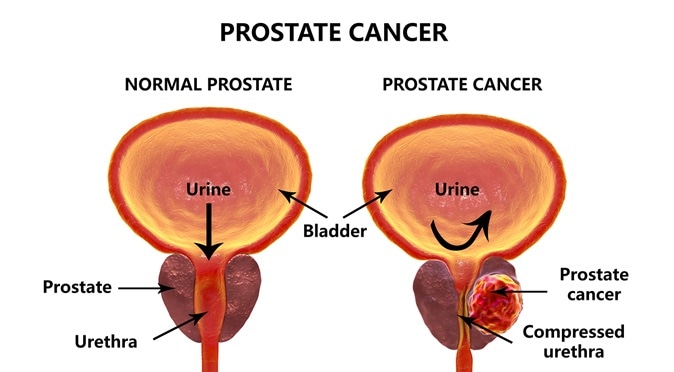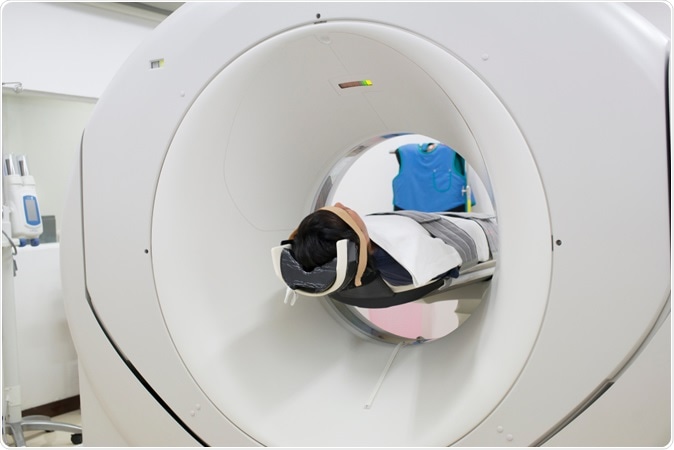Men with prostate cancers under the NHS would soon get non-invasive MRI scans for detections after a health body (National Institute for Health and Care Excellence or NICE) has given its approval. At present the MRI scans for detection have undergone pilot trials in three areas only and may soon be available all over Wales.
The NICE approval states that these scans are non-invasive and are also cost-effective. These scans can successfully detect more cancers says the health body. NICE would be releasing finalized recommendations or guidelines next year and till then the Welsh Government as well as the health boards are gearing up for this change.
One in nine men living in Wales is affected by prostate cancer and the diagnosis may often be difficult and painful using biopsies. According to recommendations use of a Multi-parametric MRI (mpMRI) scan can use three types of scan to get a clear picture of the prostate. There is in addition injection of a dye for a clearer picture of the tumour. Once it is determined that there is a high possibility of a cancer, the doctors can go for a biopsy to confirm the condition.

Prostate cancer, 3D illustration. Image Credit: Kateryna Kon / Shutterstock
Subsidizing these mpMRI scans to around £315 is also on the cards after a successful campaign from the public. As part of the pilot trial the scans are available at Cardiff and Vale, Aneurin Bevan and Cwm Taf health boards. At present only 51 percent of the population has access to these scans at these rates.
According to a statement from Paul Chrisp, NICE's centre for guidelines director, “This diagnostic pathway will hopefully improve survival, reduce unnecessary surgery and benefit both patients and the NHS in the long term.” Claudia McVie, Tenovus Cancer Care chief executive lauded these changes as well. She said, “It is imperative Welsh Government invests in improving diagnostic capacity across Wales and developing their diagnostic workforce.”

MRI Scanner in hospital. Image Credit: Tuttoo / Shutterstock
Professor Mark Emberton, the man behind pioneering this diagnostic tool for prostate cancer detection said, “This is an important moment, bringing an end to the postcode lottery in the UK in terms of MRI provision. MRI for all men prior to biopsy of the prostate is the most important development in the management of men with early prostate cancer that we have had in the last 100 years. The UK has led the evidence gathering for MRI in men at risk of prostate cancer and it is great to see the UK being the first country to make a formal recommendation that it should be used in all men prior to a biopsy.”
Prostate cancer kills 11,800 men annually say the statistics. It has become a leading killer say the reports toppling over breast cancer. This could be because of the developments in breast cancer diagnosis and management. Compared to that, prostate cancer diagnosis is often delayed say experts. The experts add that if MRI scans were the first line diagnostic tool for men, 28 percent or around 28000 men could go home without needing a biopsy of their prostates. For the others biopsy could be taken more accurately with the MRI scans guiding the doctors to take the samples of tissues from the suspicious regions of the prostate only. This would allow for a 46 percent more “significant” diagnosis of cancers. At present biopsy alone method of diagnosis can allow for only 26 percent accuracy of diagnosis among all men screened. It would reduce the diagnosis of “insignificant” cancers by 59 percent. Insignificant cancers are those that are less likely to progress.
Heather Blake, of Prostate Cancer UK in a statement said, “Now that NICE has endorsed this breakthrough diagnostic technique as being both clinically and cost-effective there should be no further delay in making sure all men can benefit from the increased accuracy of diagnosis. We want to see the new recommendations taken up by commissioners and clinicians in all parts of the country.”